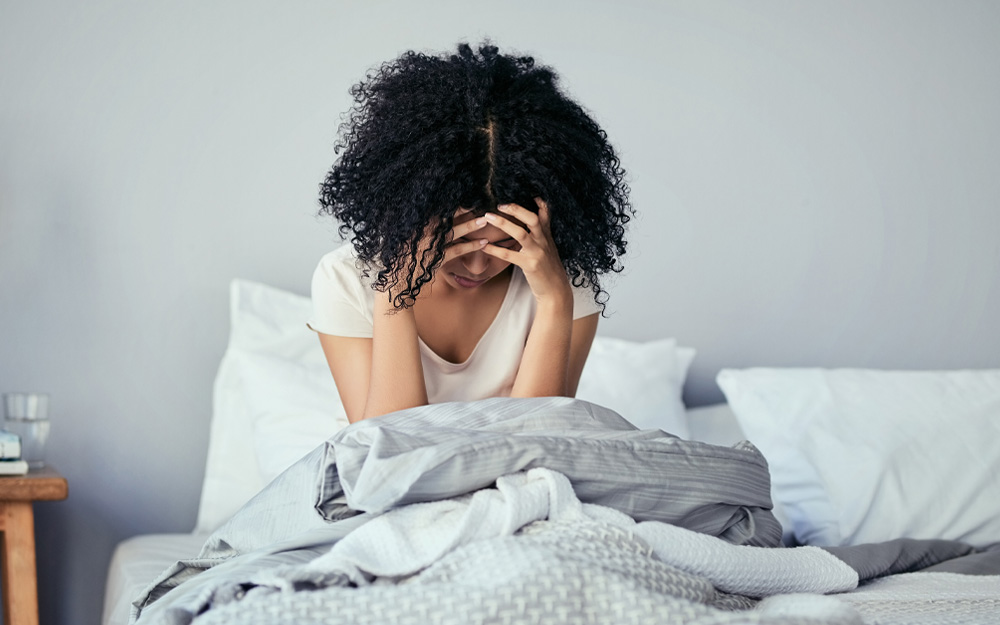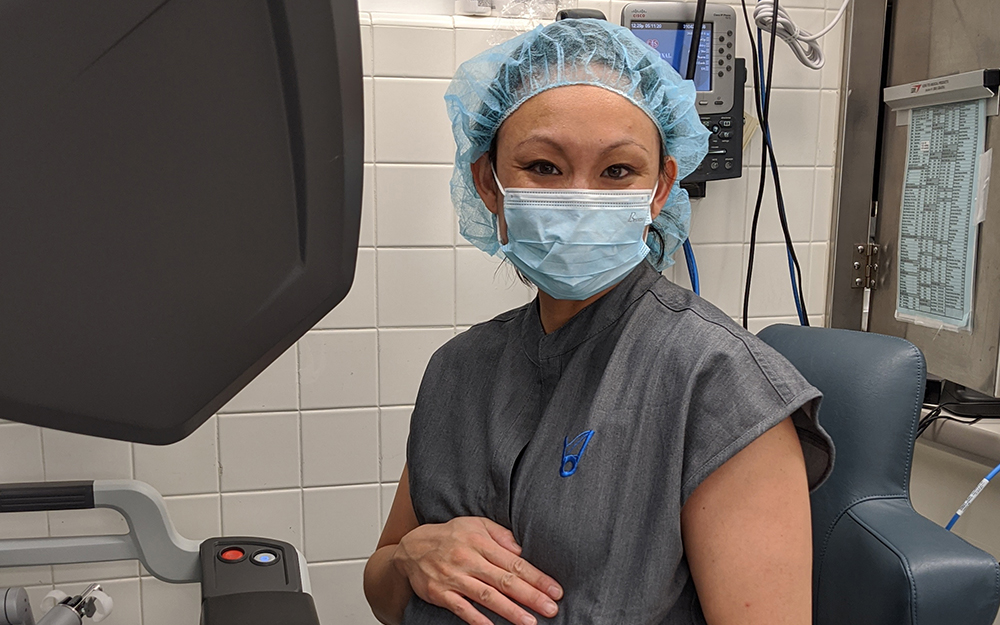The Buzz on Women's Sexual Health
Date
May 13, 2022

Date
May 13, 2022
Credits
Medical providers featured in this article
In Brief
{{cta-block}}
Is it time for doctors to start prescribing vibrators?
That's one of the research questions being posed by a team of Cedars-Sinai doctors addressing female sexual dysfunction, a health issue that affects around 40% of women of reproductive age worldwide—a condition that patients and medical professionals alike can be reluctant to address.
A lack of data on sexual dysfunction in women
The team points to a dearth of studies, tools and recommendations to help women with the conditions that fall under the catch-all diagnosis that can include pelvic pain, pain during sex, arousal difficulties, orgasmic disorders and other symptoms that can take a toll on quality of life and relationships.
"We have studies looking at the diagnosis and management of sexual dysfunction, but there isn't really much data on the patient perspective, healthcare perception or what kind of treatments are working," says Dr. Poone Shoureshi, a urogynecology fellow at Cedars-Sinai.
"There's a huge gap in medical literature on what we can do for these patients, and we need a better understanding of what the general public knows to help treat these patients in the future."
{{providers}}
"We know we need to exercise all parts of our bodies, and we all hear we shouldn't skip 'leg day,' but we regularly skip 'pelvic floor day"
Can vibrators be used as a medical tool?
The team has presented its question at three major urogynecology conferences this year. Their literature review found that vibrators, still often as taboo as female sexual pleasure itself, appeared in only a handful of studies—but all of them yielded results promising enough to warrant further investigation into them as a useful medical tool.
Dr. Alexandra Dubinskaya, a urogynecology fellow, is leading a new study at Cedars-Sinai to determine if vibrators can help women who are suffering from sexual dysfunction, urinary frequency or urgency, overactive bladder, incontinence and/or pelvic organ prolapse.
The pelvic floor is made up of muscles that, like any other muscles, lose their strength and elasticity if they're not used. Stimulating the area encourages blood flow and activates those muscles, potentially benefitting them.
"We know we need to exercise all parts of our bodies, and we all hear we shouldn't skip 'leg day,' but we regularly skip 'pelvic floor day,'" Dr. Dubinskaya says.
"Exercising the pelvic floor muscles could be challenging, and that's why vibrators could be a really good modality to actually massage the muscles and increase the blood flow in the area."
Evaluating the medical effects of regular vibrator use
Women in the study are interviewed about their sexual, pelvic floor and overall health. They fill out a validated questionnaire on their symptoms and undergo a pelvic exam.
Participants are given a vibrator and instructed to use it three times a week for three months. Afterward, women discuss their experience, fill out exit questionnaires and have another pelvic exam. The study aims to evaluate the effect of regular vibrator use on subjective symptoms and wellness, and make an objective assessment of tissue quality and organ prolapse.
The concept tested in the study is already in clinical use for men. Men who have had surgery for prostate cancer, for example, are routinely prescribed erectile dysfunction medications. The resulting blood flow allows the tissue to stretch and maintain its functionality.
"In the same way the increased blood flow from an erectile dysfunction pill helps men heal following their cancer surgery, using a vibrator might help women," says Dr. Karyn Eilber, urologist and sexual health expert at Cedars-Sinai.
Educating women about sexual dysfunction
The team also wants to build a better base of knowledge for doctors and patients. For example, every mobile phone is a conduit to thousands of applications for everything from plotting your commute to tracking your period to delivering groceries.
A review by the team found only six apps that provide evidence-based information on female sexual dysfunction, and only one of those was approved by experts to be recommended to patients. Later this year, the team will start a focus group of women who will be given access to the app for a month to evaluate if it could be a useful platform for increasing education about sexual dysfunction.
"It's a widespread problem that affects thousands of women," Dr. Shoureshi says. "Despite the prevalence of urogynecologists, pelvic medicine doctors and sexual medicine doctors, there's actually a really small number of people who know how to treat these disorders. Even an online app would be an important expansion of our toolbox to help women."
Removing the taboo around women's sexual health
Part of the researchers' goal is to increase conversations about sexual health. The team is quick to point out the taboo and squeamishness around women's sexual wellness and pleasure.
"It's an important topic," Dr. Eilber says. "Doctors need to be actively involved in removing the stigma. We need to take sexual health and mental health as seriously as physical health."







